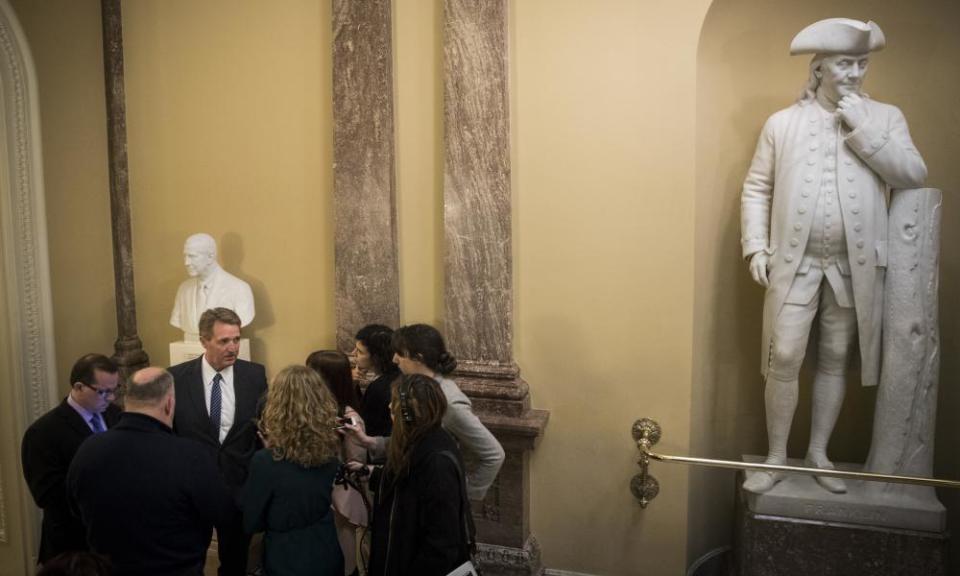Government shutdown: Republicans float deal to end 'Dreamers' deadlock
The US government shutdown edged closer to a resolution on Sunday night with a minor concession from the Senate majority leader, Mitch McConnell, who said he would allow a vote on immigration reform in February if Democrats agree to fund the government.
However, one Democratic source cautioned that no deal had been reached.
McConnell’s proposal was the fruit of an effort among moderates in both parties to resolve the shutdown, which began at midnight on Saturday.
The shutdown was spurred by the inability of Congress to reach a deal to resolve the status of “Dreamers” – undocumented migrants brought into the US as children protected from deportation until September 2017, when the Trump administration ended the Daca program, created by Barack Obama.
Trump allowed a six-month grace period for Congress to give Dreamers permanent legal status. Democrats, facing heavy pressure from immigration advocates, pledged not to fund the government until a deal was reached.
McConnell’s proposal would allow the Senate to debate and vote on an immigration deal if a broader bipartisan compromise was not reached in the next three weeks.
Speaking on the floor, the top Senate Republican said he would push for a Monday vote on a short-term deal to fund the government through 8 February, as well as extending for six years a popular health insurance program, Chip, that provides healthcare coverage to nine million children.
Republicans used Chip as leverage in the failed vote on Friday night, which sought to fund the government for four weeks. They ultimately wooed four Democrats to support the proposal.
A hardline stance on immigration has been a priority of the Trump administration and support for the popular healthcare program was a way to lure Democrats without making concessions on Dreamers.
However, four Republicans opposed the bill and it failed to reach the 60-vote supermajority needed to avoid a filibuster in the Senate. Republicans had expressed concern about the government being funded by a series of short-term bills since September, as well as what they thought was inadequate spending on defense.
On Sunday, as leaders of both parties sought to apportion blame and the White House took a hardline position on the shutdown, Trump and key advisers urged that McConnell take the “nuclear option” and remove the 60-vote threshold, an option the majority leader does not support.
On Monday morning, Trump went back on the attack on Twitter, writing: “The Democrats are turning down services and security for citizens in favor of services and security for non-citizens. Not good!”
He added: “Democrats have shut down our government in the interests of their far left base. They don’t want to do it but are powerless!

At least one Republican dissenter indicated on Sunday that he would support McConnell’s move. Jeff Flake, an ardent anti-Trump conservative from Arizona, said he would support a three-week funding bill after opposing the four-week proposal on Friday.
Doug Jones, a Democrat from Alabama who participated in the bipartisan talks, tweeted on Sunday night that he was “encouraged” by McConnell’s comments.
Any immigration deal reached by the Senate would however need to be approved by the House of Representatives.
House speaker Paul Ryan has committed to supporting a spending bill that runs through 8 February, as opposed to the one the House passed last week, which would have run through 16 February.
However, he has steadfastly refused to negotiate on immigration while the government is in shutdown.
“Open the government and then we’ll resume negotiations, it’s just that clear,” Ryan said on Fox and Friends on Monday.
Mark Meadows, the head of the hard right House Freedom Caucus, threw cold water on the idea that a Senate deal would bind the lower chamber.
The North Carolina Republican told reporters Ryan had to understand “the will of his conference and of the majority of the majority”, should drive any vote on immigration reform.

 Yahoo News
Yahoo News 
